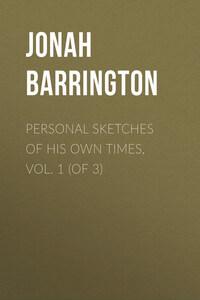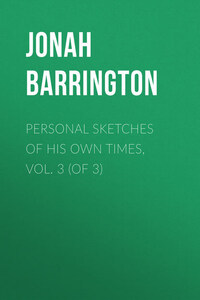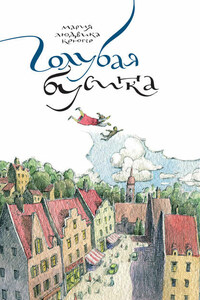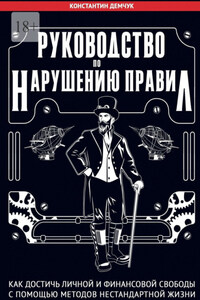Family mansion described – Library – Garden – Anecdotes of my family – State of landlord and tenant in 1760 – The gout – Ignorance of the peasantry; extraordinary anomaly in the loyalty and disloyalty of the Irish country gentlemen as to James I., Charles I., Charles II., James II., and William – Ancient toasts – My great-grandfather, Colonel John Barrington, hanged on his own gate; but saved by Edward Doran, trooper of King James – Irish customs, anecdotes, &c.
I was born at Knapton, near Abbeyleix, in the Queen’s County, – at that time the seat of my father, but now of Sir George Pigott. I am the third son and fourth child of John Barrington, who had himself neither brother nor sister; and at the period of my birth, my immediate connexions were thus circumstanced.
My family, by ancient patents, by marriages, and by inheritance from their ancestors, possessed very extensive landed estates in Queen’s County, and had almost unlimited influence over its population, returning two members to the Irish Parliament for Ballynakill, counties of Kilkenny and Galway.
Cullenaghmore, the mansion where my ancestors had resided from the reign of James the First, was then occupied by my grandfather, Colonel Jonah Barrington. He had adopted me as soon as I was born, brought me to Cullenaghmore, and with him I resided until his death.
That old mansion (the Great House as it was called) exhibited altogether an uncouth mass, warring with every rule of symmetry in architecture. The original castle had been demolished, and its materials converted to a much worse purpose: the edifice which succeeded it was particularly ungraceful; a Saracen’s head (our crest) in coloured brick-work being its only ornament. Some of the rooms inside were wainscoted with brown oak, others with red deal, and some not at all. The walls of the large hall were decked (as was customary) with fishing-rods, fire-arms, stags’ horns, foxes’ brushes, powder-flasks, shot-pouches, nets, and dog-collars; here and there relieved by the extended skin of a kite or a king-fisher, nailed up in the vanity of their destroyers: that of a monstrous eagle, (which impressed itself indelibly on my mind,) surmounted the chimney-piece, accompanied by a card announcing the name of its assassin – “Alexander Barrington;” – who, not being a rich relation, was subsequently entertained in the Great House two years, as a compliment for his present. A large parlour on each side of the hall, the only embellishments of which were some old portraits, and a multiplicity of hunting, shooting, and racing prints, with red tape nailed round them by way of frames, completed the reception-rooms; and as I was the only child in the house, and a most inquisitive brat, every different print was explained to me.
I remained here till I was near nine years old; I had no play-fellows to take off my attention from whatever I observed or was taught; and so strongly do those early impressions remain engraven on my memory, (naturally most retentive,) that even at this long distance of time I fancy I can see the entire place as it stood then, with its old inhabitants moving before me: – their faces I most clearly recollect.
The library was a gloomy closet, and rather scantily furnished with every thing but dust and cobwebs: there were neither chairs nor tables; but I cannot avoid recollecting many of the principal books, because I read such of them as I could comprehend, or as were amusing; and looked over all the prints in them a hundred times. While trying to copy these prints, they made an indelible impression upon me; and hence I feel confident of the utility of embellishments in any book intended for the instruction of children. I possessed many of the books long after my grandfather’s death, and have some of them still. I had an insatiable passion for general reading from my earliest days, and it has occupied the greater proportion of my later life. Gulliver’s Travels, Robinson Crusoe, Fairy Tales, and The History of the Bible, all with numerous plates, were my favourite authors and constant amusement: I believed every word of them except the fairies, and was not entirely sceptical as to those “good people” neither.
I fancy there was then but little variety in the libraries of most country gentlemen; and I mention as a curiosity, the following volumes, several of which, as already stated, I retained many years after my grandfather and grandmother died: – The Journals of the House of Commons; Clarendon’s History; The Spectator and Guardian; Killing no Murder; The Patriot King; Bailey’s Dictionary; some of Swift’s Works; George Falkner’s Newspapers; Quintus Curtius in English; Bishop Burnet; A Treatise on Tar-water, by some other bishop; Robinson Crusoe; Hudibras; History of the Bible, in folio; Nelson’s Fasts and Feasts; Fairy Tales; The History of Peter Wilkins; Glums and Gouries; somebody’s Justice of Peace; and a multiplicity of Farriery, Sporting, and Gardening Books, &c. which I lost piecemeal, when making room for law-books – probably not half so good, but at least much more experimental.










